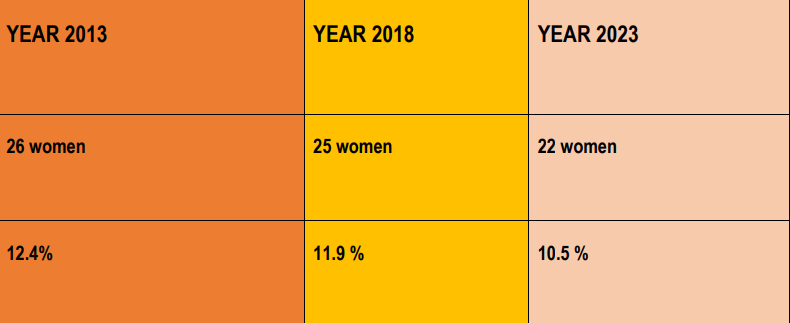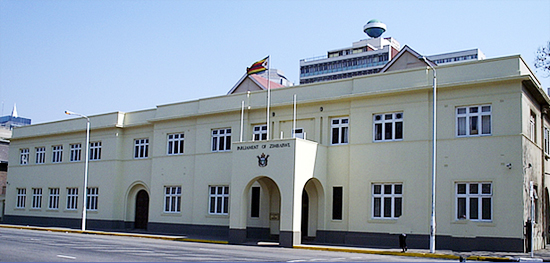Women’s organisations and political analysts have called for more directly elected women leaders in Zimbabwe, following the decline in the number of women who won the 2023 election under the direct Member of Parliament (MP) ticket.
In the election, only 22 out of 70 women who ran for MP were elected.
The Citizens Coalition for Change (CCC) had 10 directly elected women MPs, while the ruling Zanu-PF had 12.

Source: Women’s Coalition of Zimbabwe
Sandra Gama, Programs Officer at the Girls Table, said the decline in the number of women elected to Parliament is a reflection of the negative influence of patriarchal norms and attitudes in Zimbabwean society.
“In 2018, 14.4% of contesting candidates for the National Assembly were women. Out of 210 seats, 26 were subsequently elected to office. On the 23rd of August 2023, 70 women out of 637 contested for the National Assembly, and 22 were elected to office. Elected women in the National Assembly accounted for 12.4% of seats in 2018 and 10% in 2023, which is a decline of 2,4% from 2018. Despite provisions in the Convention on the Elimination of All Forms of Discrimination Against Women (CEDAW), the African Charter on Human and People’s Rights (ACHPR), and the Zimbabwean Constitution on women’s participation and yet women’s inclusion in politics keeps declining,” she said.
“This reflects the negative influence of the patriarchal norms and attitudes in our political parties and in our communities generally,” she said. “We are not living up to the standards set out in the Constitution. Therefore, more needs to be done to compel political parties to ensure 50-50 representation.”
Effie Ncube, a political analyst, said the number of women in Parliament and councils is way below what is expected 43 years into independence.
“This reflects the negative influence of the patriarchal norms and attitudes in our political parties and in our communities generally,” she said. “We must legislatively push for more directly elected women leaders. It can be done and therefore it must be done.”
The decline in the number of women elected to Parliament is a setback for Zimbabwe’s efforts to achieve gender equality. The country’s Constitution guarantees equal rights for women and men, and the government has set a target of 50% representation for women in Parliament.
Gama said several factors contribute to the constant decline in the participation of women and subsequent low numbers of women being elected into office.
“These include the high nomination fees that saw aspiring candidates failing to contest, stereotypes and cultural norms that view politics as a male domain and discourage women from taking leadership roles or expressing their opinions, violence and intimidation targeted at women candidates, electoral violence, including gendered disinformation, lack of resources and support networks limited the ability of women and youth to campaign effectively, access information, mobilise voters and monitor elections,” she said.


Leave a comment